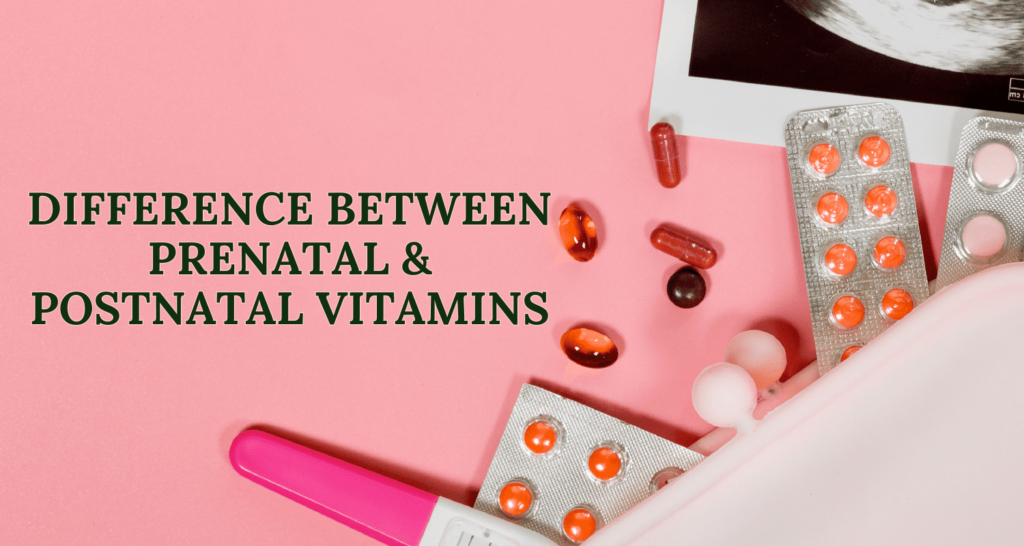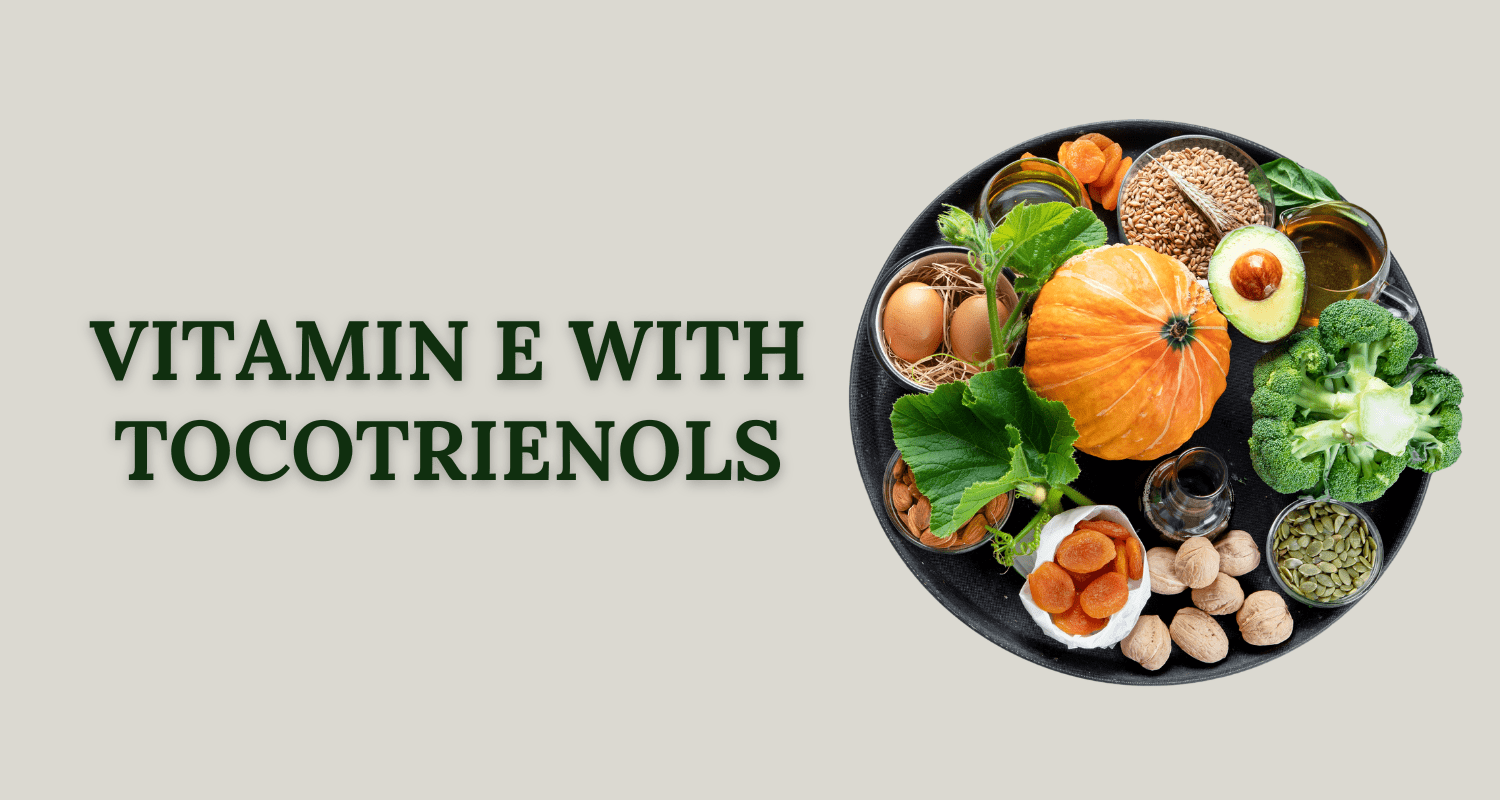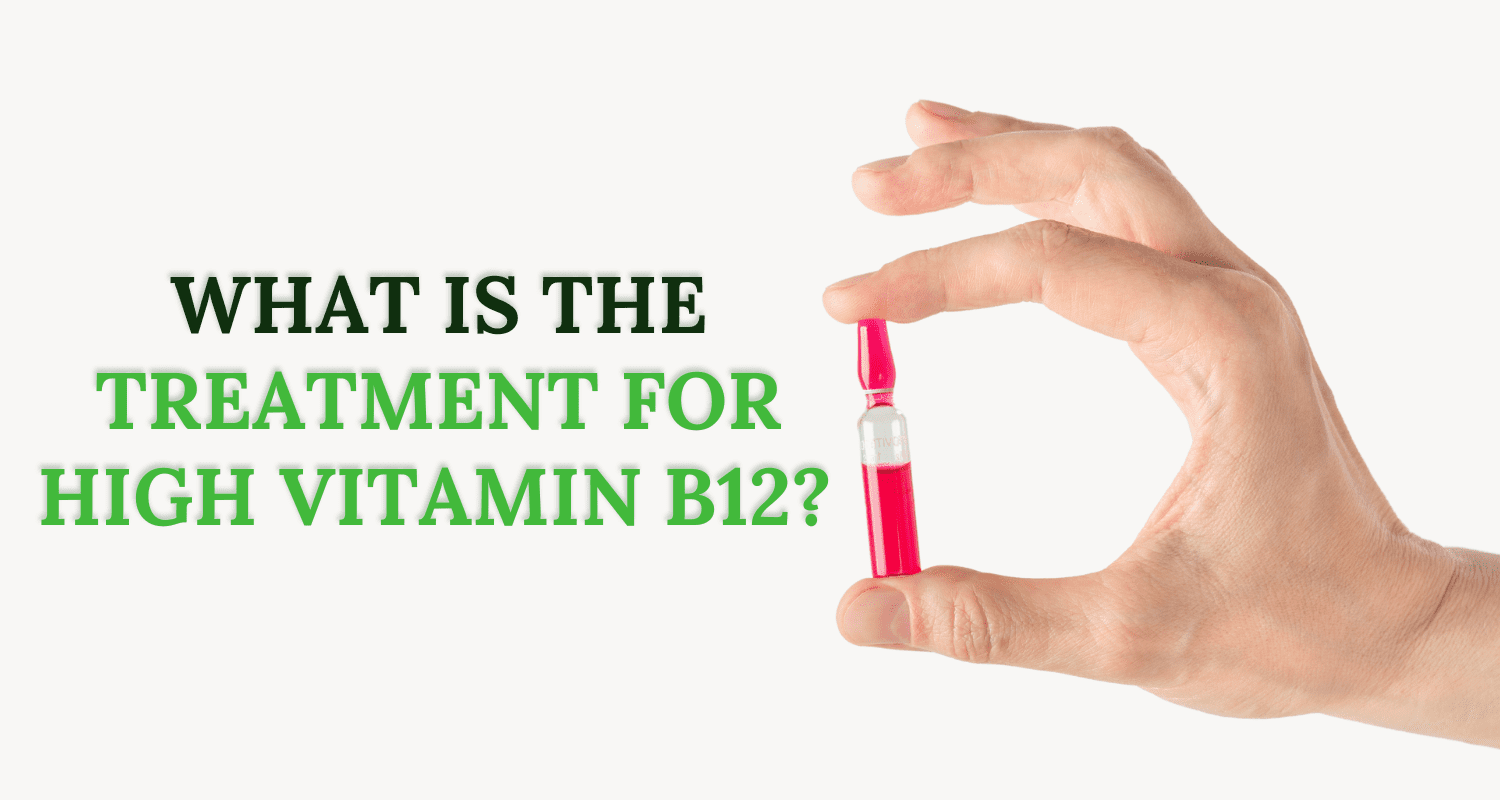Did you know that the nutritional needs of pregnant and postpartum women change significantly?
To support their health and the development of their babies, they require specific vitamins tailored to each stage.
In this article, we will dive into the difference between prenatal and postnatal vitamins, helping you understand the unique benefits and uses of these supplements for the well-being of both mothers and infants.
Let’s delve into the difference between prenatal and postnatal vitamins.
Key Takeaways:
- Understanding the difference between prenatal and postnatal vitamins is crucial for the health of expectant and new mothers.
- Prenatal vitamins focus on supporting fetal development and meeting increased nutrient requirements during pregnancy.
- Postnatal vitamins play a vital role in replenishing nutrient stores, supporting lactation, and aiding in postpartum recovery.
- Prenatal and postnatal vitamins differ in nutrient composition, dosage, and recommended usage.
- Consulting with healthcare professionals for personalized recommendations is essential when choosing the right vitamin supplement.
Key Difference Between Prenatal and Postnatal Supplements
Prenatal and postnatal vitamins are specifically formulated to meet the unique nutritional needs of women during different stages of pregnancy. While both types of supplements play a crucial role in supporting maternal and infant health, there are key disparities in prenatal and postnatal supplements.
Prenatal Supplements:
- Prenatal vitamins are typically taken before and during pregnancy to ensure essential nutrient intake for the developing fetus.
- They contain higher levels of certain key nutrients like folic acid and iron, which are vital for the baby’s growth and development.
- These supplements help address specific deficiencies that pregnant women may encounter due to increased nutrient requirements.
- The nutrient composition of prenatal vitamins is designed to support the healthy development of the baby, as well as the overall well-being of the mother.
Postnatal Supplements:
- Postnatal vitamins are taken after childbirth to replenish nutrient stores that may have been depleted during pregnancy.
- They focus on supporting postpartum recovery and lactation, providing key nutrients essential for the mother’s well-being.
- Postnatal supplements often have variations in nutrient composition compared to prenatal vitamins to align with the changing needs of the mother.
- These supplements help meet the nutritional requirements associated with breastfeeding and the physical demands of recovery.
Understanding the difference between prenatal and postnatal vitamins is important for mothers to ensure they are providing their bodies with the appropriate nutrients during different stages of pregnancy and postpartum.
Prenatal vs Postnatal Vitamins
When it comes to taking care of your health during pregnancy and postpartum, choosing the right vitamin supplement is crucial. Prenatal and postnatal vitamins are specifically formulated to address the unique nutrient needs of women during different stages of motherhood.
Prenatal vitamins are designed to support the healthy development of the fetus and provide the essential nutrients that pregnant women require. These vitamins typically contain higher levels of folic acid, iron, and calcium.
Folic acid plays a vital role in preventing birth defects, while iron helps prevent anemia, a common condition during pregnancy. Calcium is necessary for bone development in both the mother and the baby.
Postnatal vitamins, on the other hand, are tailored to support the new mother’s recovery and provide the nutrients necessary for breastfeeding. These vitamins may include higher levels of nutrients such as vitamin D, omega-3 fatty acids, and calcium.
Vitamin D is essential for bone health and immune function, while omega-3 fatty acids promote brain and eye development in breastfeeding infants.
Variations in Nutrient Composition
- Prenatal vitamins are typically higher in folic acid, iron, and calcium.
- Postnatal vitamins may contain higher levels of vitamin D, omega-3 fatty acids, and calcium.
Dosage and Recommended Usage
- Prenatal vitamins are taken during pregnancy and should ideally be started before conception. They are usually continued throughout the entire pregnancy journey.
- Postnatal vitamins are recommended for new mothers after giving birth and during the breastfeeding period to replenish nutrient stores and support lactation.
Remember, choosing the right vitamin supplement should be done in consultation with your healthcare provider. They can guide you on the specific nutrient requirements based on your individual needs and circumstances.
Whether you opt for prenatal or postnatal vitamins, ensuring that you receive the essential nutrients during pregnancy and postpartum is vital for the health and well-being of both you and your baby.
Benefits of Prenatal Vitamins
Prenatal vitamins play a crucial role in supporting expectant mothers throughout pregnancy. These specially formulated supplements are designed to meet the increased nutrient requirements of both the mother and the developing fetus.
One of the primary benefits of prenatal vitamins is supporting the development of the fetus. These supplements provide essential nutrients that are vital for the baby’s growth and development.
Key nutrients such as folic acid, iron, and calcium are included in prenatal vitamins to ensure optimal fetal development.
In addition to supporting fetal growth, prenatal vitamins also help meet the increased nutrient requirements of pregnancy. Pregnancy places additional demands on a mother’s body, and prenatal vitamins help bridge the nutritional gaps that may arise.
They can provide the necessary vitamins and minerals to support the mother’s overall health and well-being during this critical time.
Prenatal vitamins are particularly rich in folic acid, a B-vitamin that plays a significant role in preventing birth defects. Folic acid is crucial for the development of the baby’s neural tube, which becomes the brain and spinal cord.
By including folic acid in their daily routine, expectant mothers can reduce the risk of certain birth defects, such as spina bifida.
Another important nutrient found in prenatal vitamins is iron. Iron is essential for the production of red blood cells, which transport oxygen throughout the body.
During pregnancy, a woman’s blood volume increases to support the needs of the growing fetus, making iron intake crucial. Prenatal vitamins provide an extra dose of iron to help prevent iron deficiency anemia in both mother and baby.
Calcium is another nutrient that is essential during pregnancy. It supports the development of the baby’s bones and teeth, and also helps maintain the mother’s bone health. Prenatal vitamins often include a sufficient amount of calcium to ensure these needs are met.
Things to Remember:
1. Prenatal vitamins support the development of the fetus and meet the increased nutrient requirements of pregnancy.
2. They provide essential nutrients such as folic acid, iron, and calcium.
3. Folic acid helps prevent birth defects.
4. Iron supports the production of red blood cells and prevents iron deficiency anemia.
5. Calcium supports the development of the baby’s bones and teeth.
Uses of Postnatal Vitamins
Postnatal vitamins are essential for new mothers as they serve multiple purposes in supporting their health and recovery after childbirth.
These supplements offer a range of benefits that are specifically designed to address the unique needs of women during the postpartum period.
Replenishing Nutrient Stores
One of the primary uses of postnatal vitamins is to replenish the nutrient stores that may have been depleted during pregnancy and childbirth.
These supplements are formulated with a carefully selected combination of vitamins and minerals to help restore essential nutrients that were utilized to support the growth and development of the baby.
Supporting Lactation
Postnatal vitamins are crucial for breastfeeding mothers as they contain key nutrients that support lactation.
These supplements typically include nutrients like vitamin D, iron, omega-3 fatty acids, and calcium, which are important for milk production and maintaining the overall health of both the mother and the baby.
Aiding in Postpartum Recovery
After giving birth, women undergo significant physical changes and need adequate support to recover.
Postnatal vitamins play a vital role in promoting postpartum recovery by providing essential nutrients that aid in tissue repair, support the immune system, and restore energy levels.
Overall Well-being
Aside from the specific uses mentioned above, postnatal vitamins also contribute to the overall well-being of new mothers.
These supplements can help combat postpartum fatigue, boost mood, and support the body’s healing process, allowing women to navigate the challenges of early motherhood more effectively.
It is important to note that the specific composition and recommendations for postnatal vitamins may vary depending on individual needs and healthcare provider guidance.
Always consult with a healthcare professional to determine the most suitable postnatal vitamin regimen for you.
Nutrient Variations in Prenatal Vitamins
Prenatal vitamins are specifically formulated to provide crucial nutrients required during pregnancy. These supplements contain higher levels of certain essential vitamins and minerals that play a vital role in supporting both the mother and the development of the fetus.
One of the key nutrient variations in prenatal vitamins is folic acid. Folic acid is essential for preventing neural tube defects in the developing baby, such as spina bifida. Prenatal vitamins typically contain a higher dosage of folic acid compared to regular multivitamins.
Iron is another important nutrient found in increased amounts in prenatal vitamins. Iron is necessary for the production of red blood cells, which carry oxygen to the mother and the baby. During pregnancy, iron needs significantly increase, and prenatal vitamins cater to this increased requirement.
Prenatal vitamins also provide higher levels of calcium. Calcium is essential for the development of the baby’s bones and teeth, as well as maintaining strong bones for the mother. It also aids in muscle and nerve function. Prenatal vitamins ensure that both the mother and the growing baby receive adequate calcium intake.
In addition to these key nutrients, prenatal vitamins may also contain higher amounts of other vitamins and minerals such as vitamin D, vitamin C, vitamin B12, and omega-3 fatty acids. These nutrients support various aspects of fetal development and maternal health during pregnancy.
Key Nutrient Variations in Prenatal Vitamins:
- Folic acid: Essential for preventing neural tube defects
- Iron: Supports red blood cell production and oxygen transport
- Calcium: Promotes bone development in the fetus and maintains strong bones for the mother
- Vitamin D, vitamin C, vitamin B12, and omega-3 fatty acids: Support overall maternal and fetal health
It’s important for pregnant women to discuss their specific nutritional needs with healthcare professionals and choose prenatal vitamins that align with those needs.
These nutrient variations in prenatal vitamins ensure that expectant mothers receive the necessary support for a healthy pregnancy and optimal fetal development.
Nutrient Variations in Postnatal Vitamins
Postnatal vitamins are specifically formulated to address the nutritional needs of new mothers after pregnancy. Unlike prenatal vitamins, which primarily focus on supporting the development of the fetus, postnatal supplements are designed to replenish nutrient stores that may have been depleted during pregnancy and childbirth.
While both prenatal and postnatal vitamins contain essential nutrients for maternal health, postnatal supplements have variations in their nutrient composition to cater to the unique needs of postpartum recovery and breastfeeding.
The specific nutrient variations found in postnatal vitamins include:
- Vitamin D: Postnatal vitamins often have increased levels of vitamin D to support bone health for both the mother and the baby.
- Omega-3 fatty acids: These essential fatty acids, such as DHA and EPA, are beneficial for brain development in infants and may also support maternal well-being.
- Iron: Adequate iron levels are important for postpartum recovery and the prevention of iron deficiency anemia, which is common after giving birth.
- Calcium: Postnatal vitamins may have higher calcium content to support bone health and lactation.
- B-complex vitamins: These vitamins, including B6, B12, and folate, are essential for energy production and overall well-being postpartum.
These nutrient variations in postnatal vitamins help meet the specific needs of new mothers during the postpartum period, supporting their recovery and the nutritional demands of breastfeeding.
Considerations for Choosing the Right Vitamin Supplement
When it comes to selecting the most suitable vitamin supplement for your needs, there are several factors to take into consideration.
Understanding the difference between prenatal and postnatal vitamins, as well as the variation in prenatal versus postnatal nutrients, is key to making an informed choice.
Here are some important points to keep in mind:
1. Nutrient Composition
Prenatal and postnatal vitamins have different nutrient compositions tailored to the specific needs of women during pregnancy and postpartum. Prenatal vitamins are designed to support fetal development and meet the increased nutrient requirements of expectant mothers.
On the other hand, postnatal vitamins focus on replenishing nutrient stores that may have been depleted during pregnancy and supporting lactation.
2. Individual Health Needs
Consider your individual health needs when choosing between prenatal and postnatal vitamins. If you are currently pregnant or planning to conceive, prenatal vitamins are essential as they provide crucial nutrients necessary for fetal development.
For new mothers who have recently given birth and are breastfeeding, postnatal vitamins can help replenish nutrient stores and support overall postpartum recovery.
3. Recommendations from Healthcare Professionals
Consulting with healthcare professionals is important to ensure you choose the right vitamin supplement. They can provide personalized recommendations based on your specific health needs and any underlying conditions you may have.
Your healthcare provider will take into account factors such as your age, overall health, and medical history to guide you in selecting the most appropriate option.
4. Quality and Safety
When searching for prenatal or postnatal vitamin supplements, always prioritize quality and safety. Look for reputable brands that adhere to strict manufacturing standards and have a good track record in the industry.
It’s also a good idea to check for third-party certifications or endorsements as markers of product quality and safety.
5. Taking into Account Lifestyle Factors
Consider your lifestyle when choosing between prenatal and postnatal vitamins. If you have dietary restrictions or follow a specific eating plan (e.g., vegetarian or vegan), make sure the selected supplement aligns with your dietary needs.
It’s also worth considering factors like convenience, ease of use, and any potential side effects associated with the chosen vitamin supplement.
By carefully evaluating these considerations, you can make an informed decision between prenatal and postnatal vitamins, ensuring you meet your nutritional needs during pregnancy and after giving birth.
Expert Recommendations on Prenatal and Postnatal Vitamins
When it comes to choosing the right prenatal or postnatal vitamin supplement, seeking guidance from healthcare professionals is essential. Their expertise can provide personalized recommendations tailored to individual needs and ensure optimal maternal and infant health.
Healthcare professionals such as obstetricians, gynecologists, and registered dietitians can offer valuable insights into the specific nutrient requirements during pregnancy and postpartum.
They can help determine the appropriate dosage, timing, and duration of prenatal and postnatal vitamin supplementation.
Considering Prenatal Versus Postnatal Nutrients
- Discussing the disparities between prenatal and postnatal nutrients is important. Prenatal vitamins primarily focus on supporting the development of the fetus and meeting the increased nutrient requirements of expectant mothers during pregnancy.
- In contrast, postnatal vitamins address the nutritional needs of new mothers, replenishing nutrient stores that may have been depleted during pregnancy and supporting postpartum recovery.
- Understanding the variations in prenatal and postnatal nutrient composition is crucial for selecting the appropriate supplement.
Experts recommend that pregnant women start taking prenatal vitamins before conception to ensure adequate nutrient levels early on.
Additionally, they emphasize the importance of continuing prenatal supplementation throughout pregnancy and during the breastfeeding period.
For optimal postnatal recovery and support during breastfeeding, healthcare professionals often recommend postnatal vitamins that contain key nutrients such as iron, calcium, and vitamin D.
These nutrients contribute to postpartum healing, energy levels, bone health, and the production of breast milk.
Conclusion
Understanding the difference between prenatal and postnatal vitamins is crucial for ensuring optimal maternal and infant health.
Prenatal vitamins are specifically formulated to meet the unique nutritional needs of pregnant women, supporting the development of the fetus and providing essential nutrients.
On the other hand, postnatal vitamins focus on replenishing nutrient stores and supporting postpartum recovery.
By selecting the right supplement and following expert recommendations, mothers can effectively support their well-being throughout pregnancy and postpartum.
Prenatal and postnatal vitamin variations, such as the increased levels of folic acid, iron, and calcium in prenatal vitamins, and the focus on nutrient replenishment in postnatal vitamins, play a key role in meeting the specific needs of women during different stages of motherhood.
When choosing between prenatal and postnatal vitamins, it is important to consider differences in nutrient composition and individual health needs.
Consulting with healthcare professionals can provide personalized recommendations and ensure that the chosen supplement aligns with the mother’s overall health goals.
Ultimately, understanding the disparities between prenatal and postnatal vitamins allows mothers to make informed decisions to support their health and the well-being of their infants.
By prioritizing the right supplement and following expert guidance, mothers can navigate the journey of pregnancy and postpartum with confidence and ensure the best possible start to motherhood.
FAQs
What is the difference between prenatal and postnatal vitamins?
Prenatal vitamins are specifically designed to support a woman’s health during pregnancy, while postnatal vitamins are tailored to support recovery and breastfeeding after childbirth.
Are postnatal and prenatal vitamins the same?
No, they are different. Prenatal vitamins focus on meeting the nutritional needs during pregnancy, while postnatal vitamins address the needs post-delivery, supporting recovery and breastfeeding.
What is the difference between prenatal and postnatal care?
Prenatal care focuses on monitoring the health of the mother and baby during pregnancy, while postnatal care involves care and support for the mother and newborn after childbirth.
What is the difference between perinatal and postnatal?
Perinatal refers to the period shortly before and after birth, encompassing prenatal (during pregnancy) and postnatal (after birth) stages. Postnatal specifically refers to the time after birth.
What is the difference between prenatal vitamins and pregnancy vitamins?
Prenatal vitamins are a specific formulation for pregnant women, containing nutrients like folic acid and iron crucial for fetal development. Pregnancy vitamins can refer to a broader range of supplements suitable during pregnancy but may not be as tailored as prenatal vitamins.
Disclaimer: This content, including advice, provides generic information only. It is not a substitute for a qualified medical opinion. Always consult a specialist or your doctor for more information. Nutrition Cult does not claim responsibility for this information.




